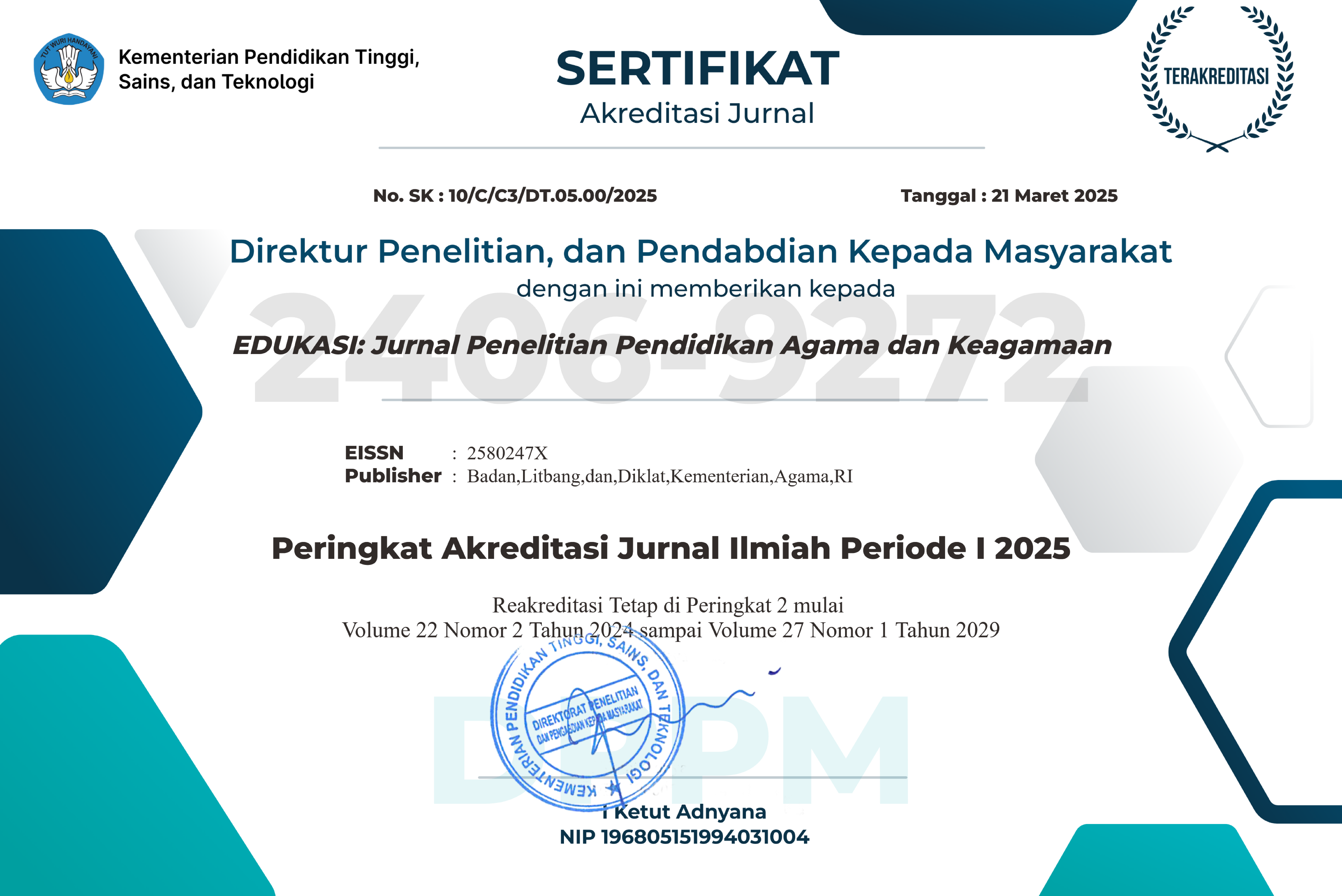Digital Da’wah Exposure and Religious Moderation among Indonesian Islamic University Students
DOI:
https://doi.org/10.32729/edukasi.v23i2.2218Abstract
Digital technology has reshaped the way university students access religious information, especially through social media platforms such as TikTok and YouTube. This study aims to examine the influence of da'wah content exposure on these platforms toward students’ understanding of religious moderation. Using a mixed methods approach with a sequential explanatory design, data were collected from 108 students at UIN Mataram through a survey, supported by in-depth interviews with four key informants. Instrument validity and reliability were tested using the Rasch Model, which yielded satisfactory results. The findings indicate a positive and significant correlation between the intensity of social media exposure and students’ comprehension of moderation values (r = 0.499; p < 0.001). The instrument used was proven to be valid and capable of identifying inconsistent response patterns. This research offers novelty through applying the Rasch approach in digital religious studies and integrating social learning theory in analyzing the religious understanding of digital natives. Limitations include the use of a single-site sample and potential bias from algorithm-driven exposure. Future research is recommended to include broader participant demographics and longitudinal approaches to observe changes over time in a more comprehensive manner.
Downloads
Downloads
Published
Issue
Section
License
Copyright (c) 2025 Sri Afsinatun, Akhmad Syahri, Nurul Imtihan, Nimatul Dinawisda, Gun Gun Gunawan

This work is licensed under a Creative Commons Attribution-ShareAlike 4.0 International License.









